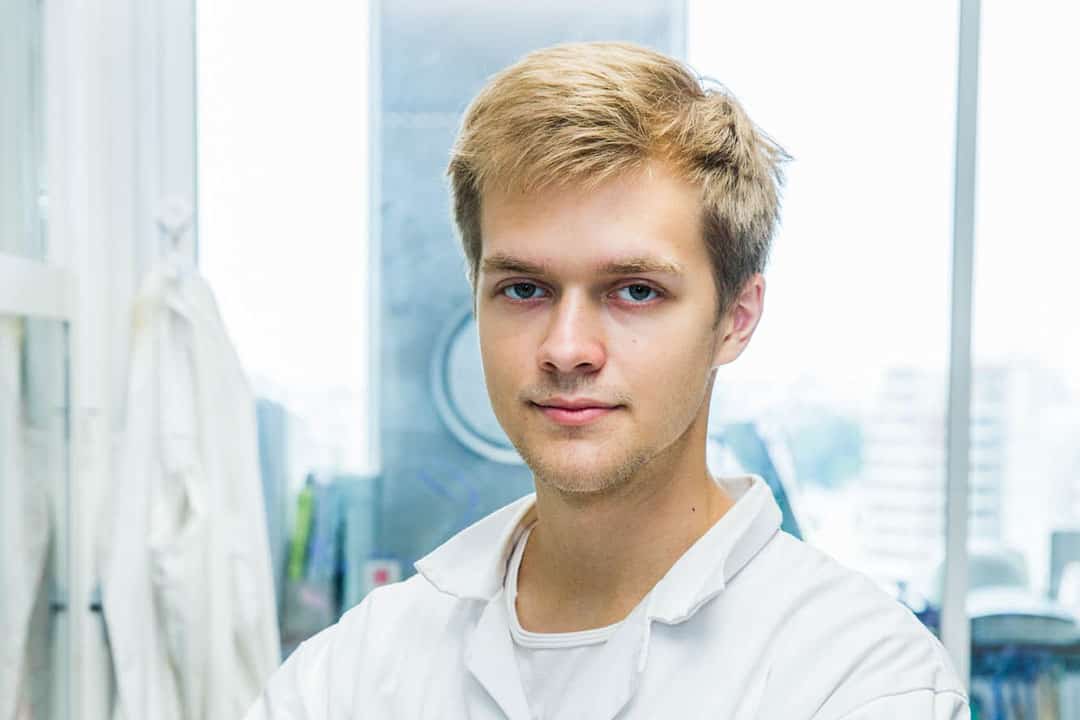A research assistant position is often seen as the holy grail of summer jobs to undergraduate science students hoping to pursue careers in academia. Not only do summer research programs bolster CVs and personal statements, but they also expose students to cutting-edge research, allowing young scientists to decide whether or not a career in research is right for them.
The Amgen Scholars Program, based out of 17 institutions across the US, Europe, and Japan, is one such program.
With a goal of encouraging advanced training and careers in the sciences, the program is open to students across the world and focuses on areas relating to science and biotechnology. The research positions are highly sought after, with 340 students selected this past year from a global pool of over 9,000 applicants.
Among those chosen was U of T’s Hlib Razumkov, currently a second-year student in the Department of Chemistry. Originally from Kyiv, Ukraine, Razumkov is a bronze medal winner of the International Chemistry Olympiad; his interests include drug design and other applications of chemistry to global issues.
Razumkov spent 10 weeks in the Amgen Scholars Program working on solar cell research at the University of Tokyo as a member of Dr. Eiichi Nakamura’s lab. The goal was to use his background in chemical synthesis to maximize the efficiency of solar cells.
Razumkov was working on perovskite solar cells, which are considered to be the future of solar cell technology, largely due to their low cost and high efficiency. Their main advantage is their ability to react to a wider range of light wavelengths than traditional solar cells, meaning that a larger fraction of the sunlight they receive can be processed into electricity.
“I was synthesizing a certain layer in the solar cell [called] the hole transporting layer,” said Razumkov. This particular layer helps to facilitate charge separation and increase the current going through the solar cell, improving the overall efficiency of the cell.
Although Razumkov could not elaborate on the specific details of the hole transporting material he was synthesizing due to the results not yet being published, he was able to share the findings of preliminary tests done before the program ended.
“The [solar cell] they tested [had an] efficiency of 10.5 per cent, while the efficiency you see on silicon solar cells or organic polymer solar cells is just two [or] four per cent.” He added that further progress will raise this efficiency from ten per cent to around 17 per cent, but the work is still ongoing.
Razumkov was highly impressed with the Amgen Scholars Program and felt that he had a strong support network during his time abroad. He stressed the importance of undertaking research projects during an undergraduate science degree, as well as obtaining a global perspective.
“Generally, science students consider two paths after they graduate: it’s either academia or industry,” said Razumkov. “The more labs you visit, to me, the more experience you get, the better you are as a worker [and] as a researcher… So I recommend [the program] for any students who want to do science… whether it’s academia or industry.”
Razumkov’s main piece of advice to students wishing to undertake similar research projects was to apply early and apply to as many programs as possible.
“Start applying while you’re reading this interview — when you finish reading this interview, if you feel like you’re interested, go look it up.”
Applications for the Amgen Scholars Program in Japan are open until February 1, 2018.


